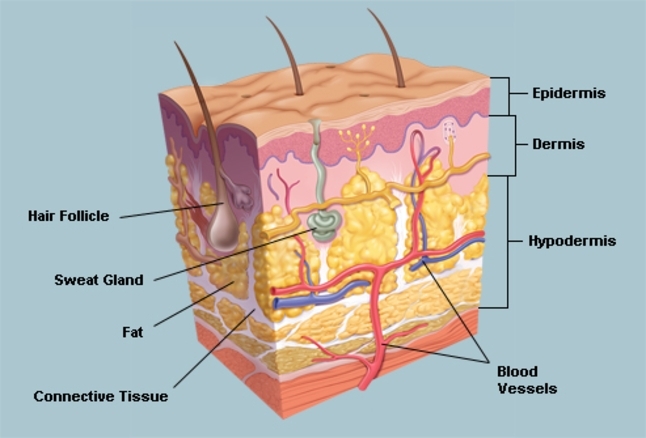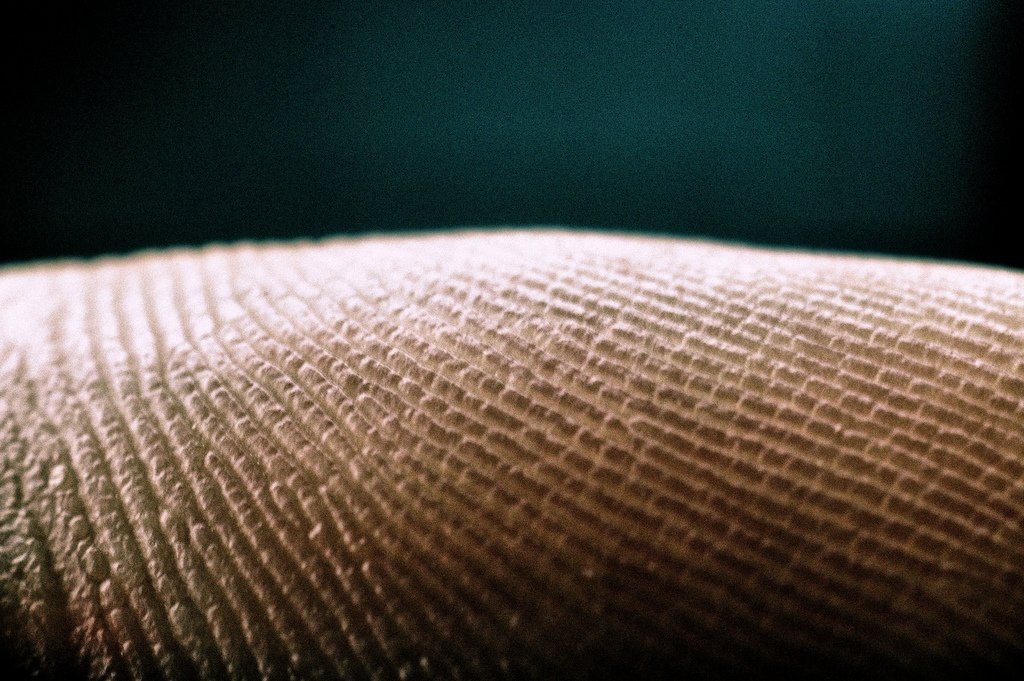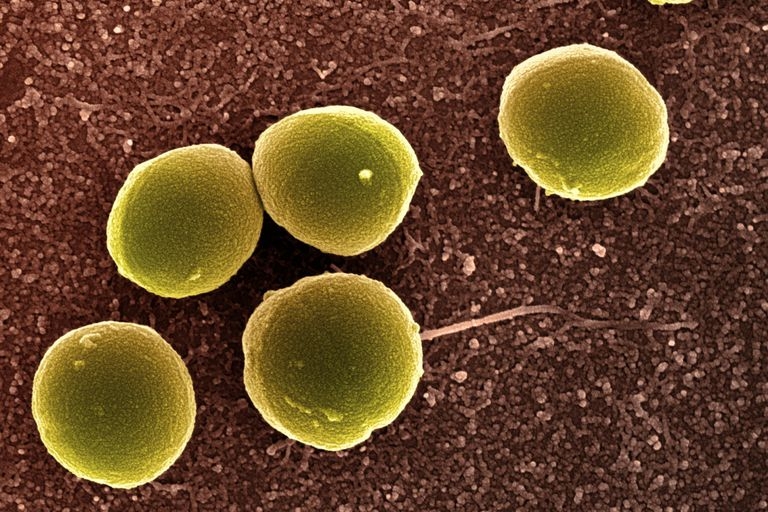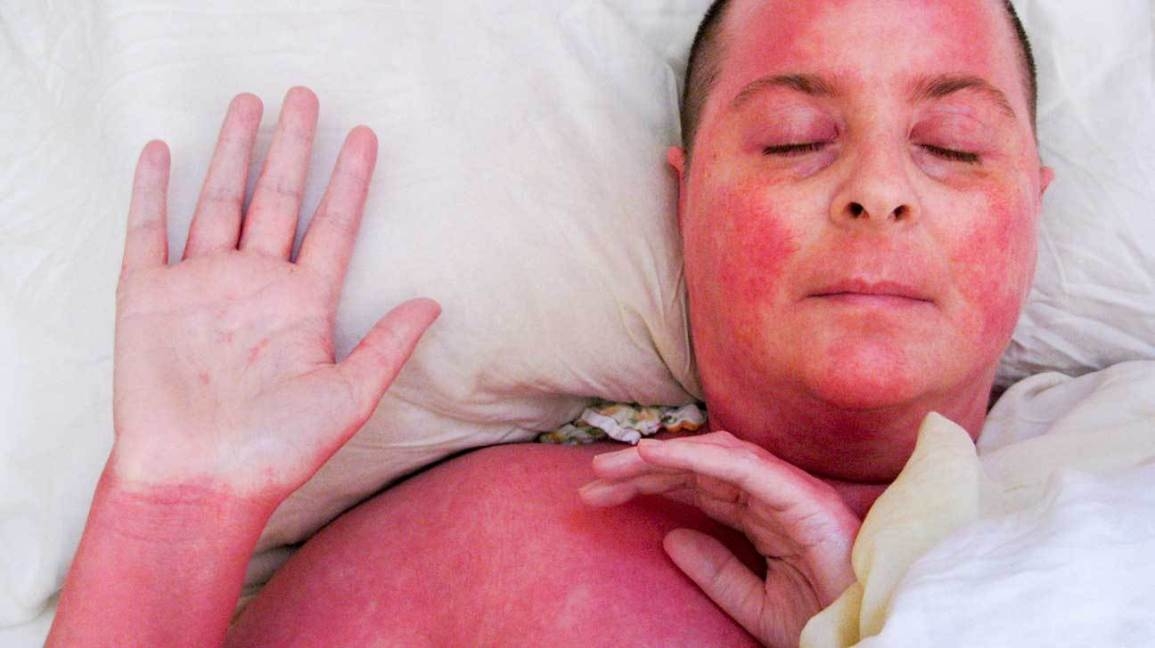12 Fascinating Facts About the Skin
 |
| Fascinating Facts About the Skin - Photo: Good Housekeeping |
Skin isn't just the outermost layer of our bodies. Without it, we couldn't do most of the things we take for granted, like breathing, moving, and keeping the body's inner workings where they belong. And while skin also evolved to keep pathogens and other bad stuff out of our bodies, consumers spend millions of dollars on products to penetrate that defense (with mixed results).
Top 12 fascinating facts about the skin.
1. Your skin has three distinct layers
 |
| Photo: WebMD |
Skin is considered an organ in its own right. It's comprised of three layers: the waterproof top layer, the epidermis; a middle layer of tougher connective tissue, hair follicles, and glands called the dermis; and the inner layer, the hypodermis, which is mostly fat and connective tissue that supports the skin's structure and attaches it to muscles.
2. Skin color is determined by cells in the epidermis
Those cells are known as melanocytes, which secrete a pigmented substance called melanin; the more melanin in the cells, the darker the skin. Having too little or too much melanin can lead to some skin color disorders: On one end of the spectrum are conditions like vitiligo—which occurs when some melanocytes lose the ability to produce melanin, resulting in whitish patches on the skin—and albinism, a condition in which melanocytes don't produce any melanin. On the other end is hyperpigmentation—the presence of excess melanin, which can cause darker patches of skin.
3. Your skin could weigh more than 20 pounds
"Your skin accounts for 15 percent of your body weight," says Toral Patel, M.D., a board-certified dermatologist and supervising physician at D&A Dermatology in Chicago and a clinical instructor of medicine at Northwestern University. This makes it your body's largest organ.
According to that calculation and data from the Centers for Disease Control and Prevention, an average American woman weighs 168.5 pounds and carries more than 25 pounds of skin. An average man weighing 195.7 pounds will have nearly 30 pounds of skin.
4. Your skin renews itself every 28 to 30 days
 |
| Photo: Twitter |
New cells are created in that deep layer of the skin and take about four weeks to rise to the surface. There, they grow hard and then shed. This process, in which old skin is sloughed off and replaced by newer skin, might occur more than 1000 times over the average American's lifespan. But all skin is not created equal: Its thickness varies naturally among all areas of the body. Thickness can also be affected by age, gender, and habits (like smoking) that can change the cells' elasticity and other traits. According to Patel, the skin on the soles of your feet is up to seven times thicker than the skin of your eyelids.
5. Tattoos stay put, thanks to cells called macrophages
If your skin cells shed every month, how do tattoos stick around? It turns out to be a function of your immune system. The puncture of the tattoo needle causes inflammation in the dermis, the skin's middle layer. In response, white blood cells known as macrophages are sent in to help heal the damage. These macrophages "eat" the dye and can pass it to newer macrophages when they die off, so the pigment is essentially transferred from one cell to another. Any leftover pigment is soaked up by fibroblasts, which are longer-lasting skin cells that don't regenerate as often. Only lasers designed for tattoo removal are strong enough to kill off the macrophages and fibroblasts that hold the dye.
6. Your skin is host to billions of creatures
 |
| Photo: ThoughtCo |
Your skin hosts a microbiome that can contain more than 1000 types of bacteria (along with other microbes, viruses, and pathogens). These "tiny ecosystems," as Patel describes them, are mostly friendly bacteria that work in concert with our bodies for many beneficial purposes, including wound healing, reducing skin inflammation, and assisting the immune system to help fight infection. These bacteria were once thought to outnumber your own cells 10 to one, but more recent research has found the ratio is closer to 1:1.
7. Dry skin in the winter isn’t only uncomfortable — it may be harmful, too
When temperatures begin to dip in the winter, harsh winds and indoor heating systems can suck the moisture right out of your skin. Having a lizardlike texture to your skin is one thing, but the issue doesn’t end there. “The skin needs to be a healthier barrier to prevent infections. Dry skin is basically a cracked, broken barrier,” says Ploch. “Many people think dry skin is cosmetic, but it can also increase our risk for infection with bacteria, viruses, and fungi.”
8. Your body's fluid balance depends on skins
Your skin is a significant shield against billions of tiny microbes and pathogens. But just as importantly, skin keeps fluids in. Another way to think of this, Patel says, is that your skin resembles a brick and mortar pattern. The bricks are the cells. The mortar is made up of lipids, fatty acids, and other sticky proteins that form the watertight layer. "If you have any ‘holes' in skin where moisture can escape, which are more susceptible to damage, that leads to dryness, cracking, and inflammation," Patel says.
People who have suffered burns often have fluid-balance problems, says Robert T. Brodell, M.D., professor of dermatology at University of Mississippi Medical Center in Jackson, Mississippi. "Fluids are seeping out, and they can't keep them balanced internally," he tells Mental Floss. This can be incredibly dangerous because the fluid loss can cause the heart to stop pumping blood to the rest of the body. Dehydration, hypertension, and other problems may also occur when the skin is injured.
9. A skin condition can put you at greater risk of other diseases
 |
| Photo: Healthline |
Psoriasis is an autoimmune condition in which the skin cells in an affected area grow rapidly, leading to excess skin buildup, inflammation, and a red and scaly rash. While it can be uncomfortable to live with the condition on its own, studies [PDF] have shown that inflammation of the skin can lead to inflammation of other tissues and internal organs, and eventually certain diseases. For example, psoriasis has been linked to a greater risk for heart disease, as well as diabetes, Crohn's disease, metabolic syndrome, and other conditions thought to be correlated with inflammation.
Patel says that association makes treatment even more important: "If one organ is inflamed, you have to make sure another isn't."
10. Your kin can respond negatively to stress, just like your mind
While it’s unlikely you can blame a newly developed zit on the traffic jam you were caught in this morning, your skin feels your emotions, too. “Stress triggers a high level of cortisol and inflammatory molecules called cytokines that spread throughout the body,” says Anolik. This can lead to a rise in inflammatory markers that trigger matrix metalloproteinases, enzymes that break down collagen molecules in the skin, he explains.
Collagen is a protein that gives skin its youthful, bouncy elasticity, according to the Cleveland Clinic. Major illnesses or events have the power to trigger the chronic stress that would affect the skin, says Anolik; it’s less likely to be caused by small day-to-day stressors. Still, developing a steady routine to deal with stress can go a long way in preserving your skin health. Exercise is a proven way to manage stress, according to the Anxiety and Depression Association of America. Likewise, a study published in March 2018 in Anxiety, Stress & Coping found that a regular yoga routine was effective in reducing stress and anxiety and boosted well-being compared with a control group.
11. Overheating is a risk if you lack sweat glands
 |
| Photo: Healthline |
Both types of sweat glands are also located in the dermis. Eccrine glands, found all over the body, emit sweat directly through pores in the epidermis. Apocrine glands release sweat along hair follicles, so it's no surprise that these glands are concentrated in the hairiest parts of the body—head, armpit, and groin. Both types help regulate body temperature: In hot conditions, the glands release water and fatty liquids to cool the skin.
A lack of sweat glands puts people in danger of overheating. Those with a condition known as anhidrotic ectodermal dysplasia have few to no sweat glands, so they can't properly cool off when the body overheats. "They get heatstroke easily," Brodell says. A subset of people with this disorder suffers from immunodeficiency. They produce low levels of antibodies and infection-fighting immune T- and B-cells, so they are more prone to skin and lung infections.
12. Your gut and your skin are symbiotic
The gut and the skin never come into direct contact with one another, yet research shows that the gut has a profound impact on the skin.
"The skin becomes very unhealthy when the microbiome of the gut goes into a state of dysbiosis," meaning when something attacks the gut's good bacteria, says Gregory Maguire, Ph.D., a former professor of neuroscience at UC San Diego and the founder and chief scientific officer of BioRegenerative Sciences, a stem-cell technology company.
Dysbiosis can lead to inflammation, irritation, rashes, and pain. "There's good evidence that eczema [or] atopic dermatitis is partially due to dysbiosis of the gut and skin," he says.
In a 2017 paper published in the Archives of Dermatological Research, Maguire writes that normal gut bacteria can actually calm the body's response to stress. A reduction in the release of the stress hormone cortisol, which is thought to cause breakouts, also reduces the chance of skin irritation—all thanks to microbes in your intestine.
| Your skin does a big job for you. In fact, each inch of skin is made up of 19 million skin cells, 650 sweat glands, 20 blood vessels, and 1,000 nerve endings, according to the American Academy of Dermatology (AAD). “The skin is the body’s largest organ. It’s our first line of defense against the outside world, including irritants and allergens. Maintaining a healthy skin barrier is crucial to this mission,” says Heidi Waldorf, MD, of Waldorf Dermatology Aesthetics in Nanuet, New York, and an associate clinical professor at the Icahn School of Medicine at Mount Sinai in New York City. More than a protective organ, your skin functions as an immune organ. |
For more interesting facts, please check out our KnowInsider!
 Top 12 Fashion Capitals Of The World Top 12 Fashion Capitals Of The World New York City, Paris, London, and Milano, the four most prominent fashion capitals in the world known as the “Big Four,” but there are many ... |
 New Year's Eve in Philippines: Top 12 Interesting Traditions New Year's Eve in Philippines: Top 12 Interesting Traditions New Year’s Eve is a time for celebrating all over the world, but few places have as many traditions and superstitions surrounding this holiday as ... |
 Top 12 Fun Facts about ICELAND - 'The land of fire and ice' Top 12 Fun Facts about ICELAND - 'The land of fire and ice' Iceland has been an extremely popular destination in the last few years, so much so that you may think you already know a lot about ... |


























